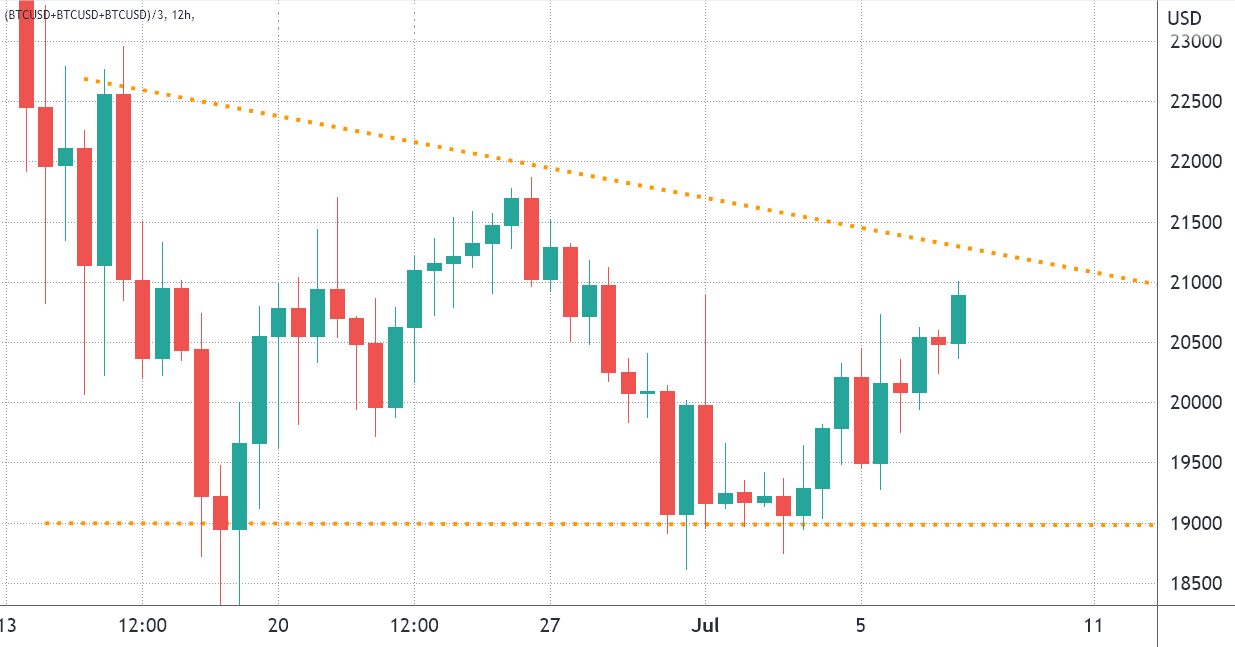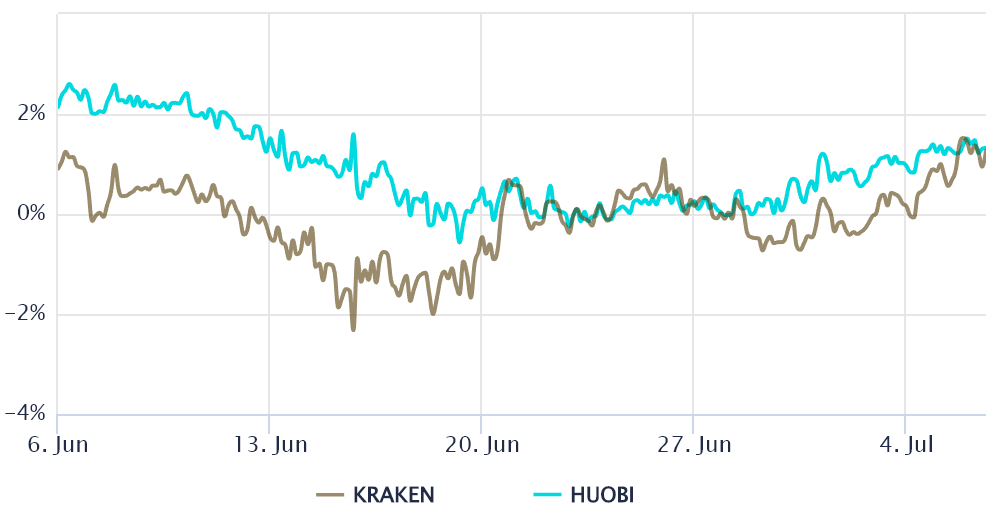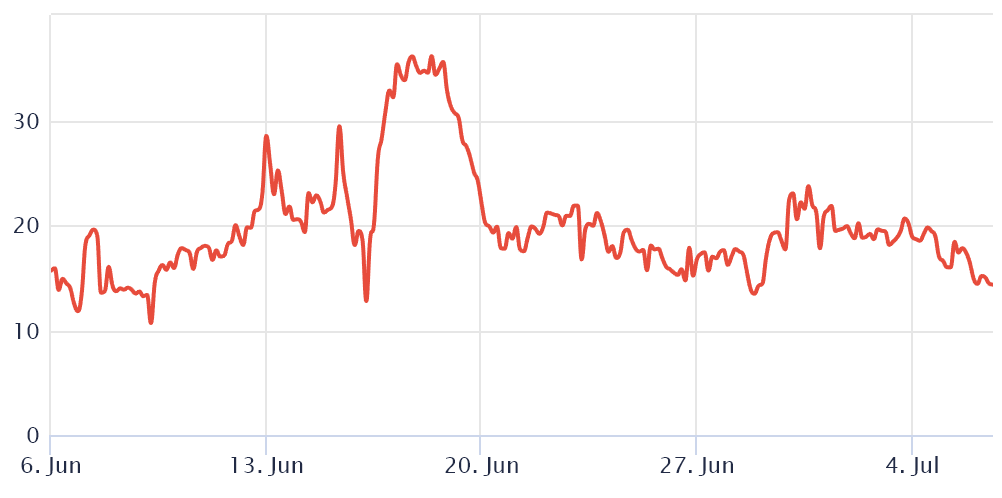A descending triangle pattern has been pressuring Bitcoin (BTC) for the past three weeks and while some traders cite this as a bullish reversal pattern, the $19,000 support remains a crucial level to determine the bulls’ fate.

On July 5, two retirement funds in the U.S. state of Virginia announced a $35 million commitment to VanEck’s cryptocurrency-focused investment fund.
On the same day a Huobi exchange subsidiary received its money services business (MSB) license from the United States Financial Crimes Enforcement Network (FinCEN). The Seychelles-based company stated that the license creates a foundation for expanding crypto-related business in the U.S.
A bit of positive news came out on July 7 as decentralized finance staking and lending platform Celsius Network announced that it had fully repaid its outstanding debt to Maker (MKR) protocol.
Celsius is among several crypto yield platforms on the brink of insolvency after historic losses across multiple positions. Forced sales on leveraged positions by exchanges and decentralized finance (DeFi) applications accelerated the recent cryptocurrency price crash.
Currently, traders face mixed sentiment between possible contagion impacts and their optimism that the $19,000 support is gaining strength. For this reason, analyzing derivatives data is essential to understand whether investors are pricing higher odds of a market downturn.
Bitcoin futures premium flips slightly positive
Retail traders usually avoid quarterly futures due to their fixed settlement date and price difference from spot markets. However, the contracts’ biggest advantage is the lack of a fluctuating funding rate; hence, the prevalence of arbitrage desks and professional traders.
These fixed-month contracts tend to trade at a slight premium to spot markets as sellers request more money to withhold settlement longer. This situation is technically known as “contango” and is not exclusive to crypto markets. Thus, futures should trade at a 5% to 10% annualized premium in healthy markets.

Related: Genesis Trading CEO confirms 3AC exposure, parent company helps plug losses
Option traders remain skeptical of each price pump
To exclude externalities specific to the Bitcoin futures instrument, traders must also analyze the options markets. For instance, the 25% delta skew shows when arbitrage desks are overcharging for upside or downside protection.
Options traders give higher odds for a price increase during bullish markets, causing the skew indicator to fall below -12%. Meanwhile, a market’s generalized fear sentiment induces a 12% or higher positive skew.

Contagion is still a threat that adds pressure across the market
It’s tough to call whether $17,580 was the cycle low, but some traders attribute the movement to Three Arrows Capital’s failure to meet its margin calls.
Some traders are calling for a “generational bottom,” but there is still a long way before investors flip bullish as Bitcoin remains locked in a descending triangle formation.
3AC got liquidated at the generational bottom, send everything into super cycle with haste
— hentaiavenger66 (@hentaiavenger66) July 6, 2022
From one side, Bitcoin derivatives metrics show modest improvement since June 30. On the other hand, investors remain suspicious of further contagion from such an important venture capital and crypto asset manager.
Sometimes the best trade is to wait for a clearer market structure and avoid leverage at all costs, regardless of your certainty of a cycle bottom.
The views and opinions expressed here are solely those of the author and do not necessarily reflect the views of Cointelegraph. Every investment and trading move involves risk. You should conduct your own research when making a decision.








Leave A Comment